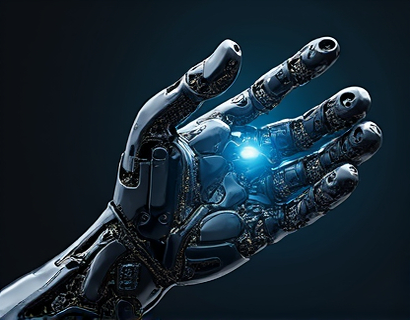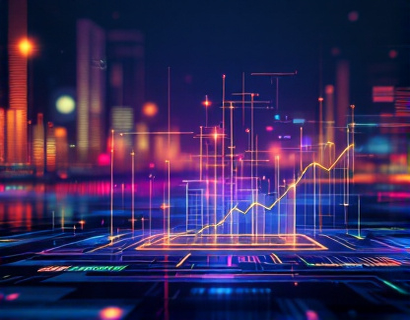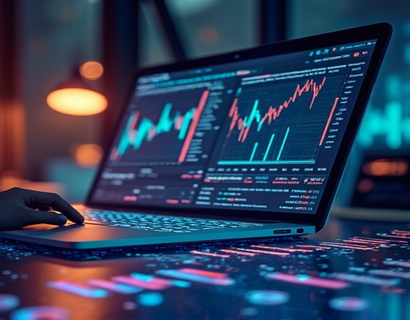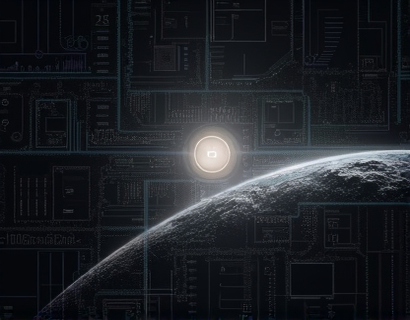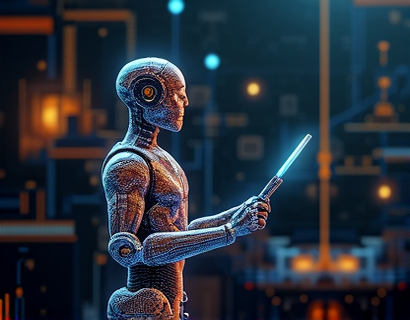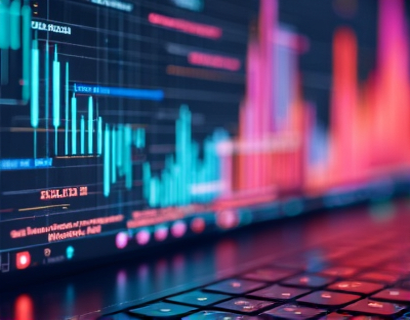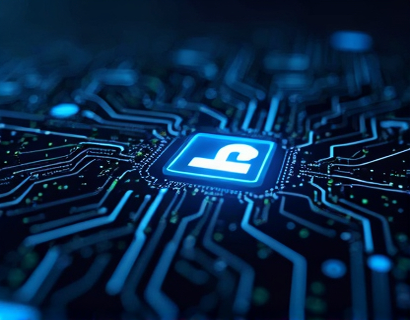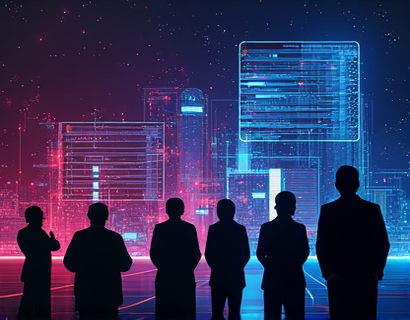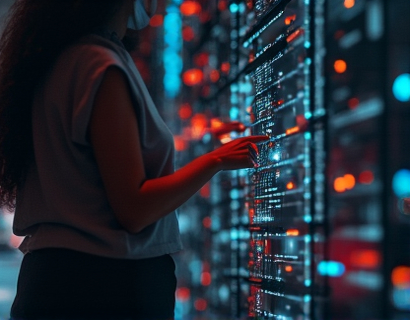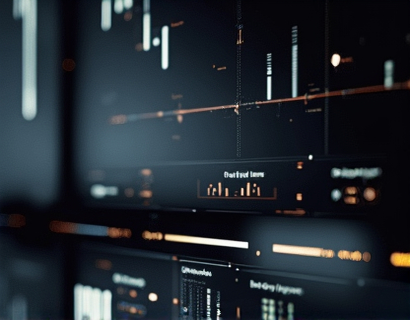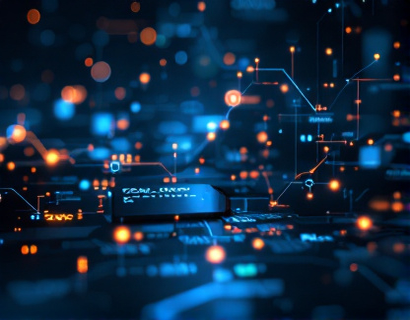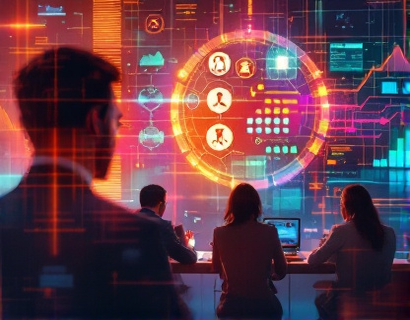Revolutionizing Digital Experiences: The Power of Crypto and AI
The intersection of blockchain technology and artificial intelligence (AI) is giving rise to a new paradigm in digital experiences. This synergy is not just a technological curiosity but a transformative force that is reshaping how we interact with apps and services online. For tech innovators and early adopters, understanding this convergence is crucial for staying ahead in the rapidly evolving digital landscape.
Understanding Blockchain and AI
Before delving into the synergy, it's essential to grasp the fundamentals of both blockchain and AI. Blockchain is a decentralized ledger technology that ensures transparency, security, and immutability in transactions. It operates on a network of nodes, each maintaining a copy of the ledger, making it resistant to tampering and fraud.
AI, on the other hand, encompasses a range of technologies that enable machines to perform tasks that traditionally required human intelligence. These tasks include learning from data, recognizing patterns, making decisions, and even exhibiting forms of creativity. AI algorithms can process vast amounts of data quickly and accurately, providing insights and automating complex processes.
The Synergy of Blockchain and AI
The combination of blockchain and AI creates a powerful toolset for enhancing digital experiences. Blockchain provides the secure and transparent foundation, while AI adds the intelligence and adaptability needed to create sophisticated and user-centric applications. This integration opens up numerous possibilities across various industries, from finance and healthcare to entertainment and beyond.
Enhanced Security and Trust
One of the most significant benefits of combining blockchain and AI is the enhancement of security and trust. Blockchain's inherent properties ensure that data is tamper-proof and transparent, which is crucial for AI systems that rely on large datasets. By using blockchain, AI applications can access data with confidence, knowing that the integrity of the data is maintained. This trust is fundamental for applications in sensitive areas such as healthcare, where patient data privacy and security are paramount.
For instance, in a healthcare setting, AI algorithms can analyze patient data to provide personalized treatment recommendations. With blockchain, this data can be stored securely and shared only with authorized parties, ensuring compliance with regulations like HIPAA. The transparency of blockchain also allows for auditable trails, making it easier to track data usage and ensure ethical practices.
Improved Data Management and Privacy
AI generates and consumes vast amounts of data, and managing this data efficiently is a significant challenge. Blockchain technology offers a decentralized and distributed approach to data management, reducing the risk of data breaches and enhancing privacy. Smart contracts, self-executing contracts with the terms directly written into code, can automate data access and usage, ensuring that data is used only as intended.
For example, in the realm of IoT (Internet of Things), devices generate massive amounts of data. Using blockchain, this data can be securely stored and managed, with AI algorithms processing it in real-time to optimize device performance and predict maintenance needs. This not only improves efficiency but also ensures that user data is handled with the highest level of security and privacy.
Personalized User Experiences
AI's strength lies in its ability to analyze complex data sets and provide personalized experiences. When combined with blockchain, these experiences can be further enhanced by ensuring that user data is owned and controlled by the individuals themselves. Blockchain-based identity solutions allow users to manage their digital identities securely, granting or revoking access to their data as needed.
In the context of online services, this means that users can enjoy highly personalized recommendations and interactions without compromising their privacy. For instance, a streaming service can use AI to analyze a user's viewing history and preferences, suggesting content that aligns with their interests. With blockchain, the user can control which data is shared and with whom, ensuring a balance between personalization and privacy.
Decentralized Applications (DApps)
One of the most exciting applications of blockchain and AI is the development of Decentralized Applications (DApps). DApps leverage the decentralized nature of blockchain to create applications that are more resilient, transparent, and user-controlled. AI can enhance DApps by providing intelligent functionalities that adapt to user behavior and preferences.
For example, a decentralized finance (DeFi) platform can use AI to optimize trading strategies, predict market trends, and manage risks. Users can interact with these AI-driven tools through a user-friendly interface, all while benefiting from the security and transparency of the blockchain. This combination not only democratizes access to financial services but also empowers users with greater control over their financial decisions.
Supply Chain Transparency
Supply chain management is another area where the integration of blockchain and AI can drive significant improvements. By combining the traceability of blockchain with the analytical power of AI, companies can achieve end-to-end visibility and optimization of their supply chains.
AI can analyze data from various sources, such as sensors and IoT devices, to monitor the condition and location of goods in real-time. This data, stored on a blockchain, ensures that it is tamper-proof and accessible to all stakeholders. AI algorithms can then use this data to predict delays, optimize routes, and identify potential bottlenecks, leading to more efficient and reliable supply chains.
For instance, a global retailer can use this technology to track the origin and journey of its products, ensuring compliance with ethical and sustainability standards. Consumers can also benefit from this transparency, gaining confidence in the products they purchase.
Smart Cities and Urban Planning
The integration of blockchain and AI extends to urban planning and smart city initiatives. These technologies can work together to create more efficient, sustainable, and responsive urban environments.
AI can analyze data from various city systems, such as traffic, energy usage, and public services, to identify patterns and optimize operations. Blockchain can ensure that this data is securely shared among different city departments and stakeholders, fostering collaboration and transparency.
For example, a smart traffic management system can use AI to analyze real-time traffic data and adjust traffic signals to reduce congestion. This data, recorded on a blockchain, can be accessed by city planners and other authorities to make informed decisions about infrastructure improvements. Additionally, blockchain can facilitate secure and transparent transactions for services like parking, public transportation, and utility payments.
Challenges and Considerations
While the potential of blockchain and AI is vast, there are several challenges and considerations that must be addressed. One of the primary challenges is the technical complexity of integrating these technologies. Developers need to have a deep understanding of both blockchain and AI to create effective solutions.
Another challenge is the regulatory landscape. As these technologies are still relatively new, regulations are evolving, and compliance can be a complex issue. Ensuring that blockchain and AI solutions adhere to legal and ethical standards is crucial for their adoption and success.
Scalability is also a significant concern. Blockchain networks, particularly public ones, can face scalability issues due to their decentralized nature. However, advancements in blockchain technology, such as layer 2 solutions and sharding, are addressing these challenges, making it more feasible to integrate with AI applications.
Future Outlook
The future of blockchain and AI is bright, with numerous opportunities for innovation and growth. As these technologies continue to mature, we can expect to see more sophisticated and seamless integrations that further enhance digital experiences.
For tech innovators and early adopters, staying informed about the latest developments in both blockchain and AI is essential. By embracing these technologies, they can leverage their potential to create groundbreaking solutions that drive growth and engagement in the digital world.
In conclusion, the synergy of blockchain and AI is revolutionizing digital experiences, offering unprecedented levels of security, transparency, and intelligence. As we move forward, the possibilities are endless, and the impact on various industries will be profound. Those who embrace this revolution will be well-positioned to lead the way in the next era of digital innovation.




